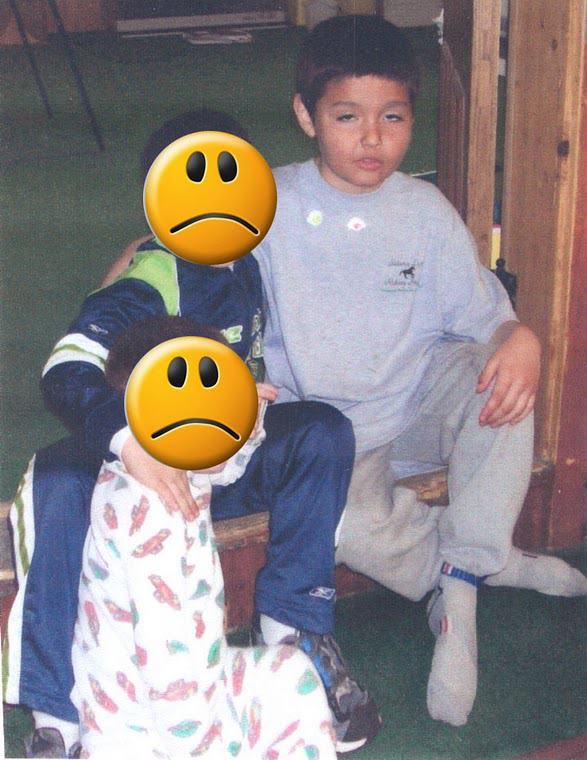Growing numbers of children on medication
Eileen FitzGerald, Staff Writer
Published: 03:10 p.m., Monday, June 7, 2010
Palliative care: Involving 'the physical, the spiritual, the soul, the family'
The pills we take
Old and highly medicated in America
This story originally appeared in the Sunday, June 6 print edition of The News-Times. Click here to subscribe.
Here's just one statistic that Danbury school psychologist Charles Manos worries about: 42 percent of all kids in foster care are taking three or more mood-altering drugs.
"All kids in foster care have some story of trauma, like abuse or neglect, so we need to ask the question `How are we dealing with trauma?'" Manos asked.
Overall, children are receiving more prescriptions than ever before to treat medical, emotional and psychological problems, according to a May report from Medco Health Solutions.
More than one in four children with health insurance in the U.S., and nearly 30 percent of all children from 10 to 19, take at least one prescription to treat a chronic condition. The most substantial increases over the past nine years have been in antipsychotic, diabetes and asthma drugs, according to the Medco report.
In some cases, students take medications at home. In many cases, school nurses dispense it.
For instance, Danbury schools health coordinator Sue Levasseur said 80 middle school students receive asthma medication each day at school and another 14 to 15 children receive a psychotropic drug at school.
Part of the school system's job is to educate parents, said Manos, who has worked in local schools for more than 30 years and also has a private practice.
"I think we have become a society that says it's OK to medicate the symptoms of kids. Medication is easier. I think as a society we are quick to change behavior rather than understand it," Manos said.
Behavior medications can be destructive if used improperly, he said.
"Say there is abuse or trauma, and we don't do an adequate analysis. Then we silence the symptoms through the medications," Manos said.
"The fact is that medication does not treat a disorder, it treats the symptoms of the manifestation, and people don't understand that. I think there is a myth that medication treats the disorder."
Parents who have an inattentive child often reach for a diagnosis of attention deficit disorder and use medication as the first line of defense, he's found.
"I think parents worry about attention issues if a child struggles. A lot of parents look for answers,'' Danbury school nurse Ellen Calle said. "I'm sure there are cases of kids being medicated unnecessarily."
Calle, who works at Great Plain School, sees more children who receive anti-depressants and anti-anxiety medication and other drugs to manage impulse control and aggressiveness than in the past.
Stimulants for ADHD -- attention deficit hyerperactivity disorder --are still a major part of medications used in school, but there are newer, longer acting ones, which means students don't need several doses to make it through the day.
"In general, kids are dealing with a lot. They are seeking help from child psychologists or psychiatrists," Calle said.
The numbers of kids with diabetes, asthma and allergies are increasing, too, Calle said, and medications can help to keep those children in school.
"There were lots of kids who needed to stay home to manage their asthma, but we now have a nebulizer in every school and we can work with a family to give the child treatment at school,'' Calle said.
Dr. Jack Fong, the medical adviser for Danbury and New Fairfield schools and clinical associate professor of pediatrics at Yale School of Medicine and associate clinical professor of pediatrics at New York Medical College, said there has to be a balance in using drugs in children.
And all medications should be reviewed for the potential side effects and effectiveness. The goal should be to individualize treatments, rather than rely on one size fits all, since within any diagnosis the patients vary greatly.
"Sometimes people want a quick fix. It's the easiest thing to do. Some medications will not do it, or you need to do other things, too," Fong said. "We rely heavily on medications and think that's the magic bullet."
For instance, Fong said during a workshop on autism at the Leir Institute in Ridgefield, he learned how medication and therapies were helping many patients with autism spectrum disorders. That underscored to him how valuable it is to have a combination of therapy and medication instead of just medication.
While he worries about too many children being medicated, Fong also worries not enough are being vaccinated.
"There is an increased trend not to vaccinate, and that is under-utilizing medications," he said. "It's not a good option to avoid immunizations."
Contact Eileen FitzGerald
at eileenf@newstimes.com
or at 203-731-3333.
http://www.newstimes.com/news/article/Growing-numbers-of-children-on-medication-514614.php
Exposing Child UN-Protective Services and the Deceitful Practices They Use to Rip Families Apart/Where Relative Placement is NOT an Option, as Stated by a DCYF Supervisor
Unbiased Reporting
What I post on this Blog does not mean I agree with the articles or disagree. I call it Unbiased Reporting!
Isabella Brooke Knightly and Austin Gamez-Knightly

In Memory of my Loving Husband, William F. Knightly Jr. Murdered by ILLEGAL Palliative Care at a Nashua, NH Hospital
No comments:
Post a Comment